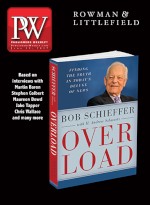How far would you go to protect your child? This is the central question of bestseller Melissa Hill's latest novel, Keep You Safe. Hill's personal struggles with this question inspired her to create Kate and Madeleine, the mothers in her new book.
Kate and Madeleine live very different lives in a small town outside of Dublin. Both are trying to do the best they can for their toddler-age daughters. Kate O'Hara, who has recently become a single mom after the sudden death of her husband, knows all about the importance of vaccinations—she's a nurse. But her daughter, Rosie, suffers from a rare condition that makes her allergic to the gelatin in vaccines. For this reason, Rosie has not been vaccinated. Is it the right call? Kate worries constantly that her community will ostracize her or that Rosie will contract a dangerous illness at school.
Meanwhile, Madeleine Cooper, who seems to live a picture-perfect life with her husband and two children, has chosen not to vaccinate her daughter, Clara. Madeleine is wary of possible side effects from vaccines. Furthermore, what she does or doesn't do with her kids, Madeleine feels, is nobody's business.
For Hill, the decisions Kate and Madeleine face are familiar. The idea for this novel, Hill says, "was initially sparked a few years back by my own concerns about the MMR [measles-mumps-rubella] vaccinations for my baby daughter." Claims linking the vaccine to autism, which Hill admits were later proved false, nonetheless troubled her. "We did vaccinate her in the end, deciding the risk of disease far outweighed any other misgivings. But for my part, I was intrigued by the very negative response among friends and family and especially other parents toward anyone who chooses not to vaccinate."
The caustic reaction that Hill experienced stayed with her. And it struck her as an ideal topic to explore in fiction. "For me, it raised an interesting question: if you truly believe your child is in danger, should you still be expected to go against your better judgment for the so-called greater good?" By opting not to vaccinate, Hill continues, a family risks "being effectively demonized by the community if the worst happens."
The latter—being cast out by your community—is something that weighs heavily on both mothers in Hill's novel. Hill is particularly intrigued by the burden that those who choose not to vaccinate bear. "Rational argument seems to have no place in the antivax discussion," she says, adding that anyone who is "mildly suspicious, for any reason, about health recommendations is almost immediately vilified."
And in fact, conditions such as the one Kate's daughter has are real, Hill says, adding that one thing rarely discussed in antivaccination debates is how parents of children with these conditions "are often afraid to publicly admit they can't vaccinate, for fear of a backlash."
Aside from the parental urge to protect, Keep You Safe explores themes of judgment among parents. One irony that Hill says she wanted to illustrate is that Madeleine, "who is unapologetic about her belief that moms need to give themselves a break and to aim to balance their own needs against parental obligations, ends up being judged because of that very belief."
But Hill hopes that readers come away from the novel with a greater understanding of the complex situations behind this hot-button issue. "I hope that the Cooper family's point of view might help tame, for some readers, a little of the hostility and anger surrounding the vaccinations debate," Hill says. "Yet at the same time, I hope to show that a decision not to vaccinate unquestionably provokes real consequences on a broader societal level." She adds, "As parents we need to give not only ourselves a break, but also those who might view the same responsibility through a different lens. Ultimately, most of us are striving for the same goal."



 Volume 264
Issue 25
06/19/2017
Volume 264
Issue 25
06/19/2017






